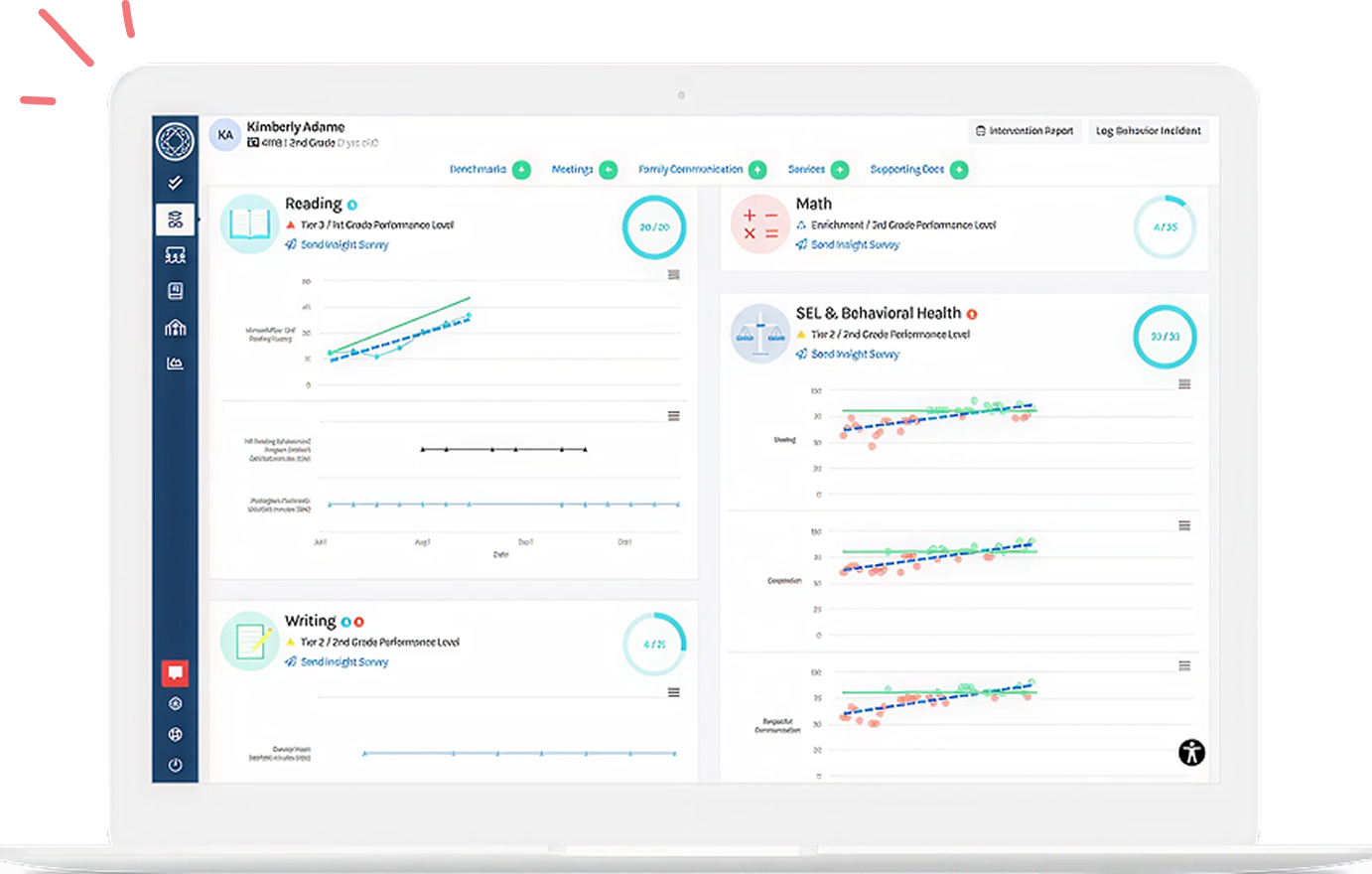Educators and school leaders across the nation are navigating the complexities of implementing Multi-Tiered System of Supports (MTSS). While the framework offers data-driven strategies to improve student outcomes, it requires significant effort to execute effectively. During our 2023 MTSS Summit, Dr. Judy Elliott and Dr. George Batsche, leading experts on MTSS, joined us to share their insights on the current trends, challenges, and methodologies shaping MTSS.
MTSS: The Main Thing
MTSS works best when it serves as the central framework for a school's operations, rather than being one initiative among many. Dr. Elliott emphasized, “Make the main thing the main thing.” The key components of MTSS must be fully integrated into a district’s processes to be effective including the use of data to inform every aspect of instruction and intervention. Schools that build capacity for data-driven discussions have greater success implementing MTSS.
And, leadership plays a pivotal role. Dr. Batsche highlighted that effective leadership—particularly a "collective leadership" style that engages stakeholders at all levels—can account for up to 29% of the variance in student outcomes. Leaders need to understand how each component of MTSS contributes to growth and ensure their teams implement these components with fidelity.
Advice for Leaders Managing MTSS
MTSS is a research-backed framework, but that doesn’t mean it is easy. Leaders must expect challenges and address them head-on at each phase of implementation. One of the biggest hurdles? Initiative fatigue. Educators feel overwhelmed by the sheer number of programs and approaches being layered into their work with little coherence.
Key advice for battling initiative fatigue:
- Start with Trust: Build trust among staff by showing how MTSS will address existing challenges with evidence-based solutions.
- Lead with Data: Share performance gaps and outcomes transparently to drive decision-making and show why MTSS is necessary.
- Create Buy-in: Gather input from all stakeholders, including teachers, principals, and district staff, through meaningful conversations. By ensuring everyone’s voice is heard, the framework becomes something people rally behind—not another burden.
- Integrate Coherently: Many schools implement effective practices individually, but MTSS brings these into an integrated, cohesive model. Highlighting this benefit can help address skepticism and historical resistance among staff.
Dr. Batsche underscored the importance of involving all levels of the educational enterprise—teachers, administrators, and even the school board—right from the decision-making stage. When decisions are made collectively, it is more likely that the implementation will gain traction and yield meaningful outcomes.
|
Did you know? The Branching Minds MTSS platform brings all the student information together in one place to enable better educator collaboration. |

About the author
Larissa Napolitan
Larissa Napolitan is the Content Marketing Manager at Branching Minds and host of the Schoolin’ Around podcast, where she spotlights innovative voices and practices shaping education today. A former middle school teacher and instructional coach, Larissa draws on her classroom experience to create meaningful content that connects research, storytelling, and practical insights for school and district leaders. She is passionate about amplifying educator voices and supporting the growth of all students.

Your MTSS Transformation Starts Here
Enhance your MTSS process. Book a Branching Minds demo today.
















.png?width=716&height=522&name=Top%205%20MTSS%20Implementation%20Tips%20for%20School%20and%20District%20Leaders%20Foundational%20Reading%20Skills%20in%20MTSS%20(preview).png)
